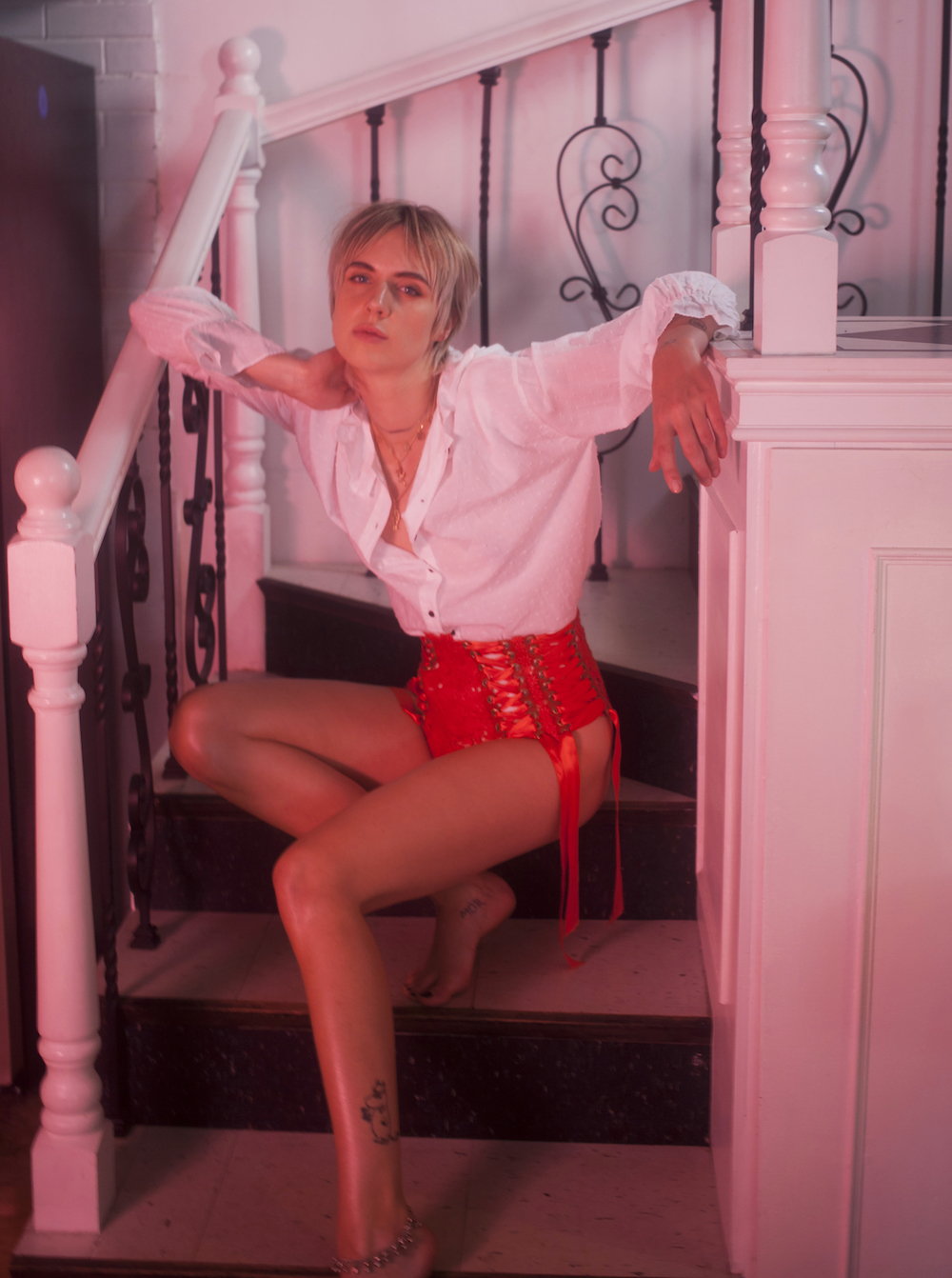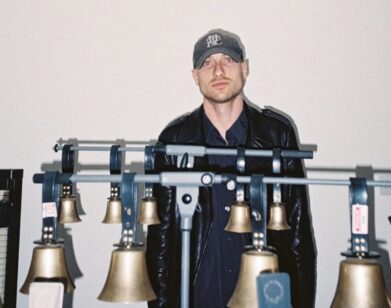How MØ turned her punk roots into pop stardom

Danish pop star MØ has a lot on her mind. Though her music is naturally anthemic and lends itself to the largest stages (of which MØ has played her fair share), there’s a passionate specificity in her lyrics and delivery that festival sing-alongs often lack. Her writing is too eclectic for her sound to ever stay the same for long, and she has the flexibility to write or record with almost anyone. To date, she’s worked with Justin Bieber, Iggy Azalea, Charli XCX, and Ariana Grande, among many others. In 2015 a song she co-wrote with Diplo, ‘Lean On’, set a new record for the most streamed song ever on Spotify.
This was a global breakthrough for MØ, but her involvement in music began years earlier, with a feminist punk duo called MOR. Back in 2007 the Danish far-right were on the rise and 18-year-old Karen Marie Orsted was drawn to the activism that flourished in opposition to their politics. Looking back on it, she tells me that the whole thing seems “so simple and gentle” in comparison to the contemporary paradigm. Like many other European nations, Denmark has experienced a radical rise in populist anti-immigration propaganda, and the right-wing of 2007 seems tame in comparison to the country’s ascendant Nye Borgerlige, the ‘New Right’ of 2017.
These days, instead of protesting injustice at student marches and punk shows, Orsted spends her time performing for thousands at stadiums, festivals, and the Nobel Peace Prize concert. Her music has changed; but, as she’s keen to point out during our conversation last month, so has everything else. Politics, social media, music and youth culture all seem to bounce off each other in her mind, and she draws deft connections between them at a dizzying pace. However, she’s never straight-faced for long, and laughs off attempts to talk about her influential status. Instead, she’s mainly concerned with her fans, who experience her music as part of their daily stream of information. She poses a difficult question for any artist: “When there is so much noise in everyone’s life, how do you cut through with something valuable?”
CLARKE: Hi, Karen. Let’s start with your first band, MOR. You were quite involved with the politics of the punk scene, right?
MØ: Oh, absolutely. I mean, our first song was called ‘Pussy In Your Face.’ It was about having a boyfriend that cheated on you so it was just like, ‘Fuck you.’ I guess it was quite feminist, but also just that straight up ‘fuck you.’ But a lot of our music was very much about the government we had back then in Denmark. Obviously compared to now, politics then were so soft, like a baby’s cheek!
CLARKE: Yeah, happy days, looking back on it.
MØ: Oh my god! Seriously. But you could always find something to shout about. And these politicians were super right-wing and terrible. So we sang about how we hated them and about the stress of being young, and the anxiety of it all. Just singing ‘Fuck society, we hate everything, fuck you’. [Laughs] But we were just two girls in this band. And we always tried to keep a spark in our eyes. Not to get too straight-faced.
CLARKE: Sometimes political music scenes can get quite preachy.
MØ: Absolutely! And I don’t think that’s necessarily good way to influence people. So we would be super political and our lyrics were radical, but we wanted people to have fun, you know?
CLARKE: Do you ever feel like going back to that sort of music, that sort of scene?
MØ: I do. I think about those things very often. But at the same time, life has just changed and often when you look back you wish you could recapture some things. But you really can’t. It was an important time in my life. Sometimes when I’m in Denmark, I think I should go back to our youth house that we have, and do bar shifts, and help out however I can. I’m pretty sure that when I’m in my thirties I will do a punk band again. I can imagine myself having like a mid-life crisis and wanting to go back to the roots. I can totally see that happening and it would be awesome. But I’m really happy doing what I am right now.
CLARKE: Do you think your 18-year old self would be able to imagine your life as it is now?
MØ: It’s not ‘not’ what I expected, you know? I never knew if it would happen. I just sort of dreamed about it. But back in 2012, when slowly some small things started to happen, that was the big change. I was just like ‘Yeaahhh!’ all the time. Of course, I expected it would be a lot of work, a lot of traveling, and all of that. So the details of what it was like weren’t super surprising. I was mainly surprised that it had happened at all!
CLARKE: Do you get the sense from older artists that what you’re experiencing now is different from how it would have been if it was ten or fifteen years ago?
MØ: Oh, yeah. Everything has changed so much! Even year to year it changes. From 2012, when I started, to now, things work so differently. The excitement of it all is always going to be the same, when you are following a dream. But there are a lot of things that are super different. A good example is features. We all feature on everybody else’s work much more now. Part of me loves how chaotic and interlocked it all is.
CLARKE: Because it’s collaborative?
MØ: Yeah, I love that. Singles and shorter projects can be great. Part of me really suits that because I have a very distracted mind. But on the other hand, I really love the whole process of building up a larger project with a character and detail, and really attaching yourself to something; a whole universe, with certain visuals and all these other specific qualities. As a teenager my favorite band was Sonic Youth, and everything they did was always obviously them, and always so artistic. There was another layer of meaning, underneath everything, that you could search for. So I miss artists that just blow you away with the whole package. Even though it feels old fashioned to say that. It’s only been a few years since albums were still the most important thing!
CLARKE: One noticeable change within pop over the last few years is its involvement with the struggle for social justice. How do you feel about the role of major artists within those movements?
MØ: I remember the first moment when I realized that things seemed to have changed was when I heard Katy Perry’s ‘Chained to the Rhythm.’ I was in the back of a cab in America when I heard the lyrics, and I was like, ‘Wait, what is she singing?’ I was so happy. I like Katy Perry, but it was so unexpected for me. We have to be careful, though. You don’t want political acts to become something you just have to do in order to look good.
CLARKE: Like for branding?
MØ: Exactly. It returns to this issue of how best to get a message out. It can’t just become more noise for people. That idea fucks me up. It must not be like that. Some things are too important.
MØ’S LATEST EP WHEN I WAS YOUNG IS OUT NOW ON SONY MUSIC.






